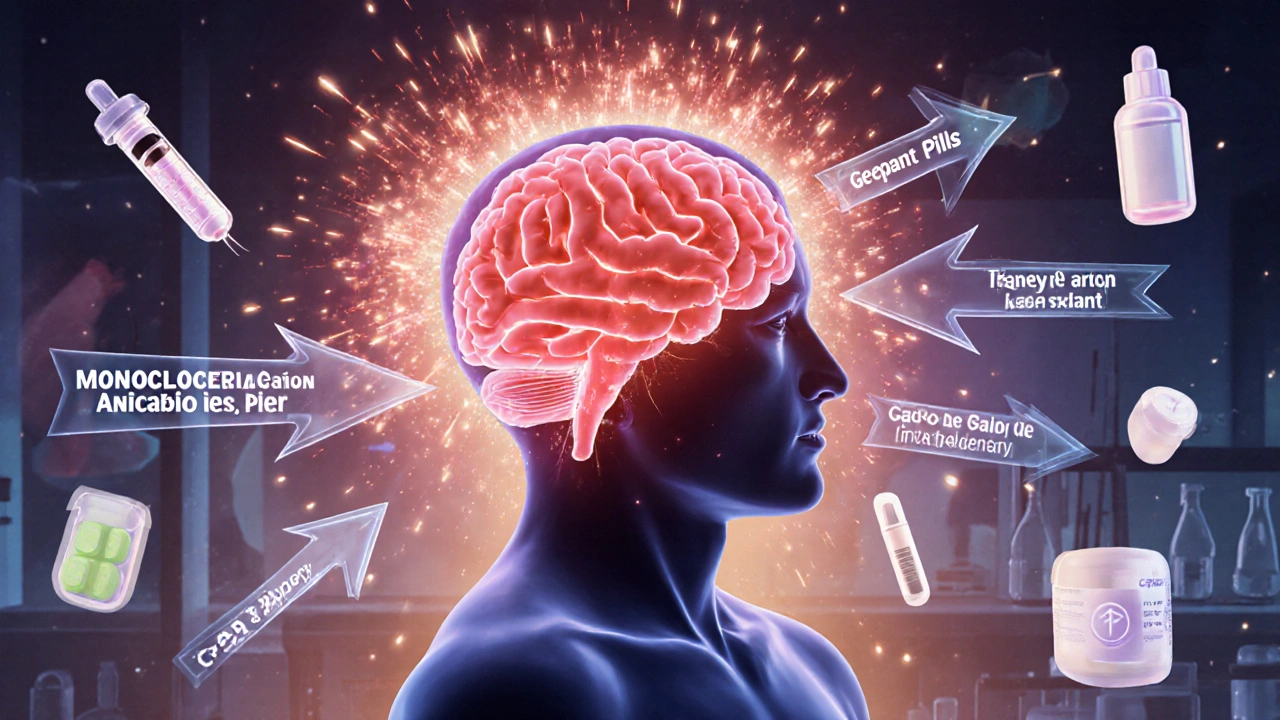CGRP inhibitors are the first migraine-specific preventive drugs, offering real relief for chronic and treatment-resistant migraine sufferers. Learn how they work, who benefits most, and what to expect from cost, side effects, and real-world results.
Migraine Treatment: Effective Options, Triggers, and What Actually Works
When you have a migraine, a severe, often disabling headache that can last hours or days, usually with nausea, light sensitivity, and sometimes visual disturbances. Also known as chronic headache disorder, it’s not just a bad headache—it’s a neurological event that disrupts work, sleep, and daily life. Millions struggle with it, and most have tried everything from painkillers to fancy supplements. But what actually works? And why do some treatments fail even when they should work?
Migraine triggers, specific factors that set off an attack, like stress, certain foods, sleep changes, or weather shifts vary wildly from person to person. One person gets hit by red wine; another by skipped meals or fluorescent lights. The key isn’t avoiding every possible trigger—it’s finding your personal ones. Tracking attacks with a simple journal (time, food, sleep, stress level) reveals patterns most doctors never ask for. And preventive migraine therapy, daily medications or lifestyle changes aimed at reducing attack frequency isn’t just for severe cases. If you have more than four bad days a month, it’s worth discussing. Options range from old-school beta-blockers to newer CGRP inhibitors, and even things like magnesium or riboflavin, which studies show can cut attacks by half in some people.
But here’s the catch: most migraine treatment guides skip the real problem—medication overuse. Taking painkillers like ibuprofen or triptans too often can turn occasional migraines into daily ones. That’s called medication-overuse headache, and it’s one of the most common reasons people don’t get better. You can’t treat your way out of it if you’re fueling the fire. The solution? Sometimes, you need to stop the meds entirely—even if it makes things worse at first. It’s counterintuitive, but it works.
What you’ll find in the posts below isn’t a list of miracle cures. It’s the messy, real-world stuff: how acid-reducing drugs can mess with migraine meds, why some supplements like Ginkgo biloba might make things worse, how dehydration triggers attacks, and what over-the-counter pain relievers actually help without causing more problems. There’s no one-size-fits-all fix. But with the right info, you can stop guessing and start controlling your migraines—without relying on luck or expensive new drugs.

